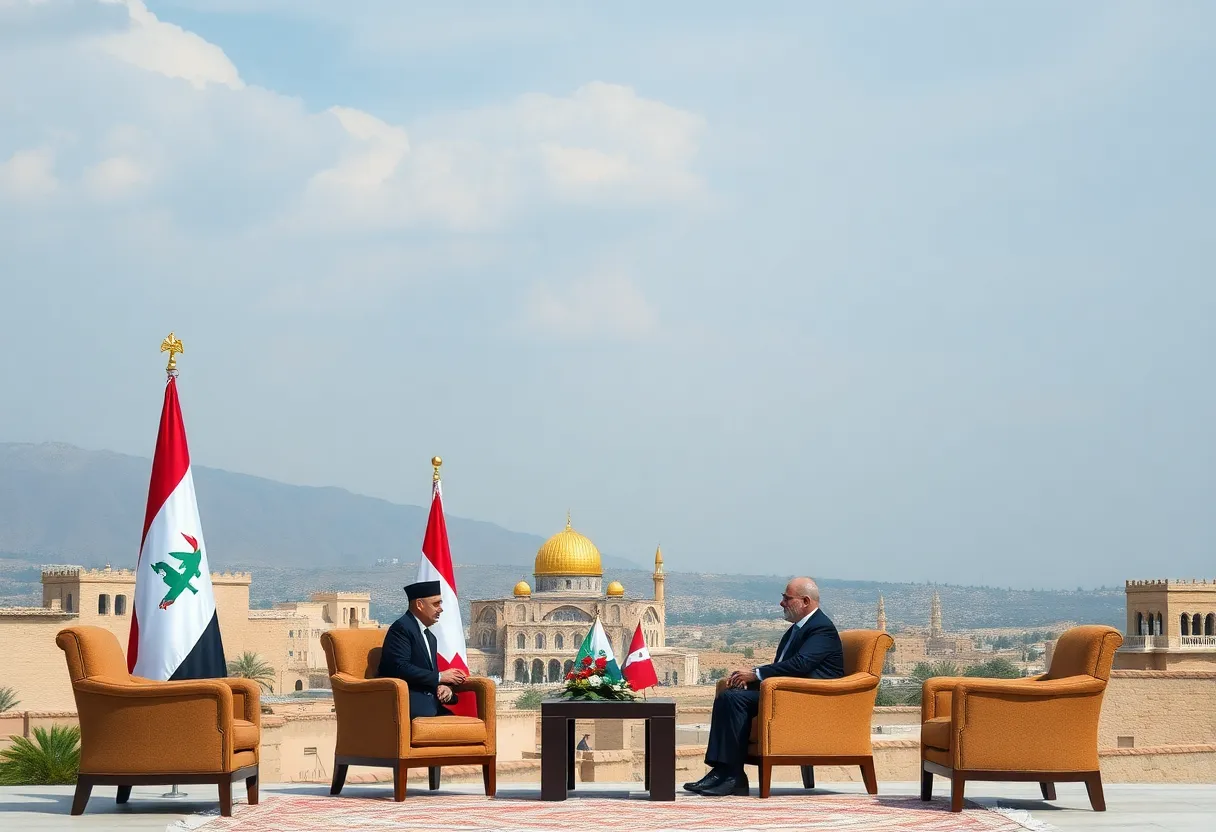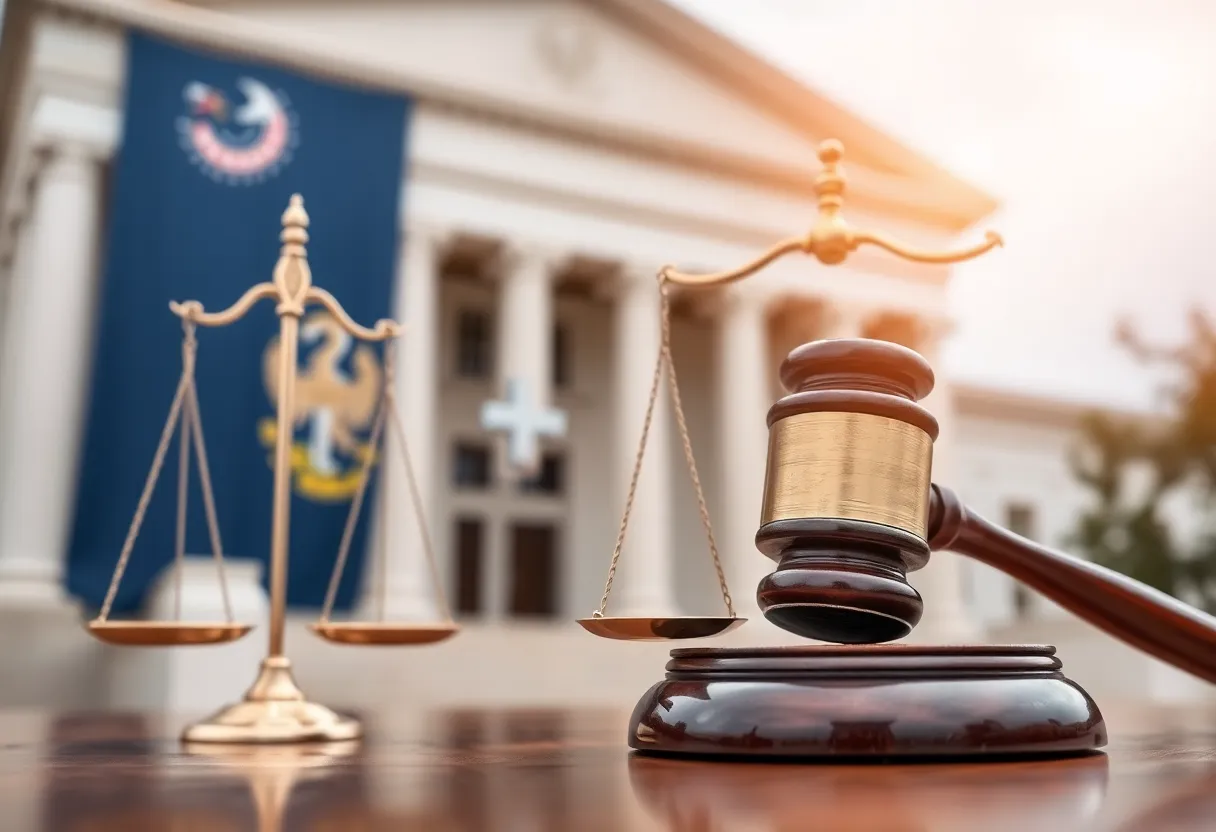News Summary
In a bold response, Saudi Arabia’s foreign ministry has firmly rejected Israeli Prime Minister Netanyahu’s remarks about a Palestinian state in Saudi Arabia, expressing concern over the implications for Palestinian sovereignty. Egypt has also voiced its disapproval, stressing the importance of protecting Saudi security. As regional discussions on a two-state solution continue, both nations navigate the complexities of establishing diplomatic ties while addressing the ongoing conflict and humanitarian crisis in Gaza.
Saudi Arabia Stands Firm Against Netanyahu’s Controversial Remarks
In recent developments that have sent waves through the international community, Saudi Arabia’s foreign ministry made a bold statement, firmly rejecting the comments made by Israeli Prime Minister Benjamin Netanyahu regarding the potential displacement of Palestinians. This came in light of Netanyahu jokingly suggesting the creation of a Palestinian state in Saudi Arabia during a televised interview, leaving many scratching their heads.
What Did Netanyahu Say?
During his interview, Netanyahu seemed to stumble over his words, initially referring to a “Saudi state” before correcting himself. His remark implied that establishing a Palestinian state in Saudi Arabia could be a feasible option. But the implications of such a statement were not taken lightly by Saudi officials.
Saudi Arabia’s Strong Response
Saudi Arabia quickly issued a statement, making it crystal clear that they **categorically reject** any notion of displacing the Palestinian people from their land. The official word was that such comments are not only misguided but also threaten to undermine the sovereignty of Saudi Arabia itself. Interestingly, while the statement addressed Netanyahu’s remarks directly, it did not delve into the provocative idea of a Palestinian state within Saudi borders.
Egypt Weighs In
Not one to sit on the sidelines, Egypt’s foreign ministry voiced its disapproval of Netanyahu’s suggestion. They labeled the idea as **”irresponsible”** and underscored that the security of Saudi Arabia is a **”red line.”** Egypt has taken steps to engage with regional partners to ensure a unified front against any attempts to displace Palestinians, emphasizing the critical importance of standing together on this issue.
Bigger Picture: Two-State Solution Talk
As discussions continue among various Arab nations, there is a pressing focus on advocating for a **two-state solution**. This solution aims to secure a dedicated homeland for Palestinians alongside Israel, allowing both sides to coexist peacefully. Egypt’s Foreign Minister was particularly vocal about rejecting any measures that would encourage Palestinians to leave their homes or relocate to different countries. Such proposals are viewed as a blatant violation of international law and an infringement on the rights of the Palestinian people.
Netanyahu’s Stance and Ongoing Tensions
It’s worth noting that Netanyahu’s position is heavily influenced by concerns for Israel’s safety, especially following the tragic October 7 attacks by Hamas, which caused extensive loss of life and injury, leading to a humanitarian crisis in Gaza. Reports indicate that the ongoing conflict has resulted in around 47,000 casualties in Gaza alone, according to the health ministry there. Netanyahu has argued that the establishment of a Palestinian state would never compromise Israel’s security.
The Road Ahead: Normalization Discussions
Against this backdrop, the delicate relationship between Israel and Saudi Arabia hangs in the balance. There are ongoing discussions about potentially normalizing ties between the two nations, yet this cannot advance without addressing the sensitive issue of Palestinian statehood. The diplomats from both countries are likely keeping a close eye on these recent developments as they navigate the complex political landscape.
Hope for the Future
In an unexpected twist, it has been reported that the release of some Israeli hostages was part of a deal involving Palestinian prisoners. The hostages appeared frail and their return highlights the human cost of the ongoing conflict. As the region grapples with these tensions, the hope remains strong for a peaceful resolution that respects the rights and aspirations of all parties involved.
The saga continues, and as we watch this situation unfold, it aims to shed light on the deeper issues at play in the Middle East’s quest for peace. Whether these diplomatic squabbles pave the way for positive change or further entrench divides remains to be seen.
Deeper Dive: News & Info About This Topic
- Reuters: Saudi Arabia Rejects Netanyahu’s Remarks
- The Times of Israel: Saudi Arabia Rejects Netanyahu’s Remarks
- Sky News: Egypt Deems Netanyahu’s Remarks Irresponsible
- Jerusalem Post: Reactions to Netanyahu’s Controversial Remarks
- Wikipedia: Israeli-Palestinian Conflict







